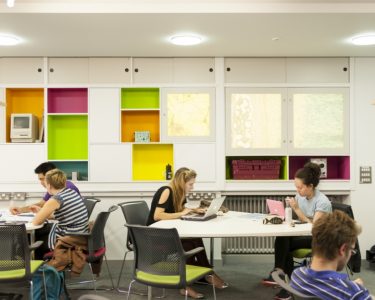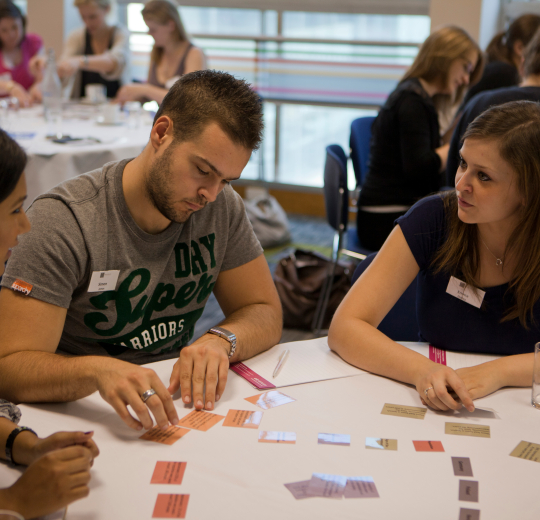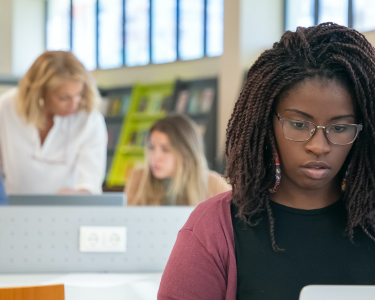Our Core CPD day is our principal introduction to the key issues in Holocaust education and is relevant to all teachers. It takes place from 8.30am to 4.30pm over a single day and includes the following interactive workshops:
Authentic encounters
• How can we move young people without shocking or traumatising them?
• How can we capture students’ interest in the Holocaust?
In this workshop, through the interrogation of an authentic artefact, teachers first encounter Leon Greenman, an Englishman, living in the Netherlands, who was deported to Auschwitz-Birkenau with his wife and child. Leon’s story provides a clear thread throughout the programme’s lesson materials.
What was the Holocaust? An interactive timeline
This practical classroom activity uses an interactive timeline to provide a clear ‘big picture’ of this complex history, skillfully combining depth and overview in a profound and meaningful learning experience.
Using details about Nazi decrees alongside personal stories of the victims, this workshop explores the impact of state policy on real men, women and children, creating a compelling interactive timeline that interweaves the narratives of multiple victim groups.
Pre-war Jewish Life
• How is it possible to understand the significance of genocide if we do not appreciate what was lost?
This workshop reveals the vibrancy and diversity of European Jewish communities on the eve of the Holocaust. We also begin to explore the European culture of antisemitism, starting with the question many Jewish children asked their parents as they struggled to understand the world around them, ‘But why do people hate us?’
Resistance
• ‘Why didn’t people fight back?’
This pressing question that so many young people ask their teachers is fully explored. Placing the actions of people in the past firmly within the context of their time, this workshop models how students’ concepts of historical empathy can be developed. Students are encouraged to consider how context and circumstances shaped what people could and could not do.
Legacy of the Holocaust
• What is the continuing significance of the Holocaust in the modern world?
• How did survivors rebuild their lives?
• What impact did the genocide have on European society?
Challenging preconceptions and complicating prior assumptions should be an objective of any classroom. This is particularly important when students examine the long-term impact of the Holocaust on its survivors, on Jewish communities, and on Europe as a whole. Just as many survivors were able to build ‘normal’ new lives, others struggled on a daily basis with the legacies of the genocide. With Leon Greenman’s later life as an example, students confront some of the enduring consequences of the Holocaust as well as the persistence of prejudice and discrimination.



